The Hung (洪) brothers have earned a reputation for drawing on obscure musical influences — ones that have seeped into their submission for Taiwan Beats Showcase. Samples from an obscure 1970s British dub soul and funk outfit with African and Buddhist influences appear in the same tune as grooves pierced with the soundscapes of Korean minyo folk.
Their stage presence is equally enigmatic. The duo perform with red cloth wrapped around their eyes, a nod to the folk ritual guanluoyin (觀落陰 ,“visiting hell”), which has received renewed interest in pop culture.
“This [song] doesn’t have that many Taiwanese elements in the music,” says Jiun Chi (洪郡崎), the younger brother who plays guitar, keyboards and synths.
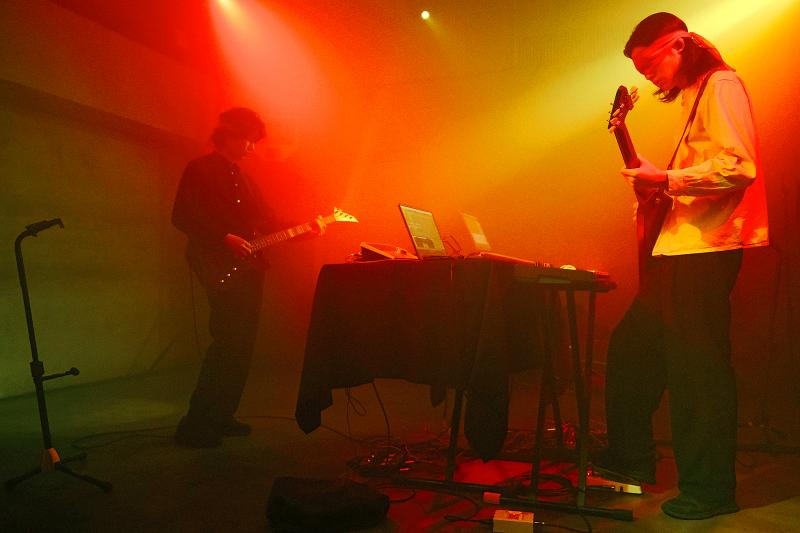
Photo courtesy of Taiwan Beats Showcase
Since the showcase required two songs, they chose A Nambra and Minyo Pop, which are often played together live due to their similar beats. The two spend a lot of time digging for obscure music and supernatural tales, which they weave into their musical fabric and other ventures such as a guide book to Taiwan’s scarier locales.
The duo was recently featured as one of six acts in a 51-minute Taiwan Beats Showcase video submitted to the US’s South by Southwest Festival (SXSW) after receiving positive responses — including a positive review in the Austin Chronicle — for its effort last year.
Spearheaded by the Ministry of Culture and executed by Young Team Productions and Fire On Music (火氣音樂), last year’s video featured just four artists, each one showcasing an essentially Taiwanese locale such as an indoor shrimp fishing venue, a temple, a medium-sized factory and the lush hills of Yilan.
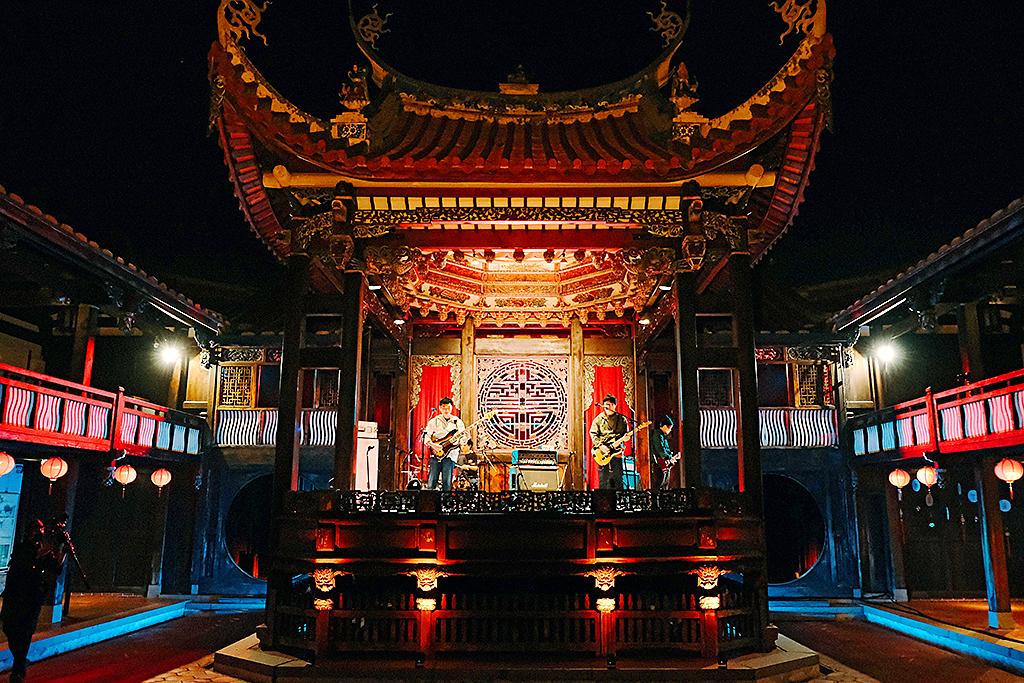
Photo courtesy of Taiwan Beats Showcase
This year’s production continues the concept with more acts on board: in addition to Mong Tong, there’s Elephant Gym (大象體操), DJ QuestionMark, Sorry Youth (拍謝少年), Olivia Tsao (曾雅雯) and Sleeping Brain (眠腦). The video premiered on Tuesday at Vieshow Cinemas Taipei Xinyi and is now available on YouTube.
DRAWING FROM TRADITION
While the previous three acts play in the more traditional sites of Lin Family Gardens in Wufeng (霧峰), an electric flower cart and one of Taiwan’s oldest movie theaters in Tainan, the Hung brothers jam on the dance floor of the smoky club Pawn Shop, known for its heavier, more experimental music.
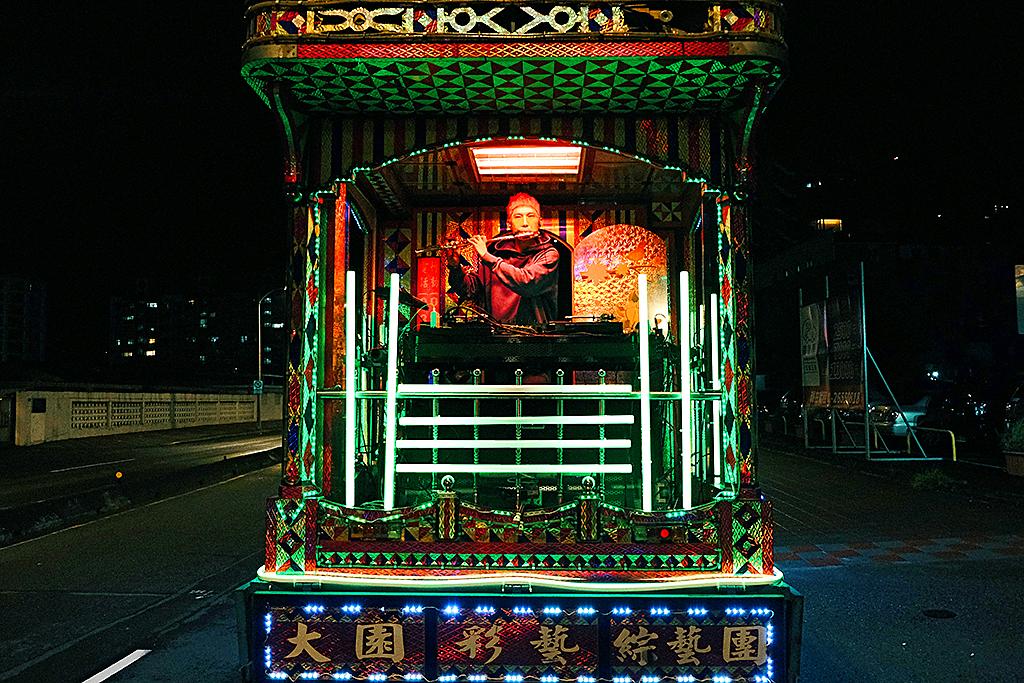
Photo courtesy of Taiwan Beats Showcase
“Pawnshop is a complete electronic music venue that echoes the techno bars of Berlin. The setting doesn’t have to be traditional Taiwanese every time.”
“I feel that this band is very driven by our personal interests,” Hom Yu (洪御) says. “Each place has its unique culture, and all we do is present sounds we liked as children and discovered as adults. We’re not trying to especially promote it to anyone.”
But a big part of their music draws from traditional Taiwanese influences, such as the sounds from funerals and temple festivals they often heard growing up in rural Changhua, the video game bleeps and bloops of their childhood as well as the 1990s occult television shows their parents tried to stop them from watching.
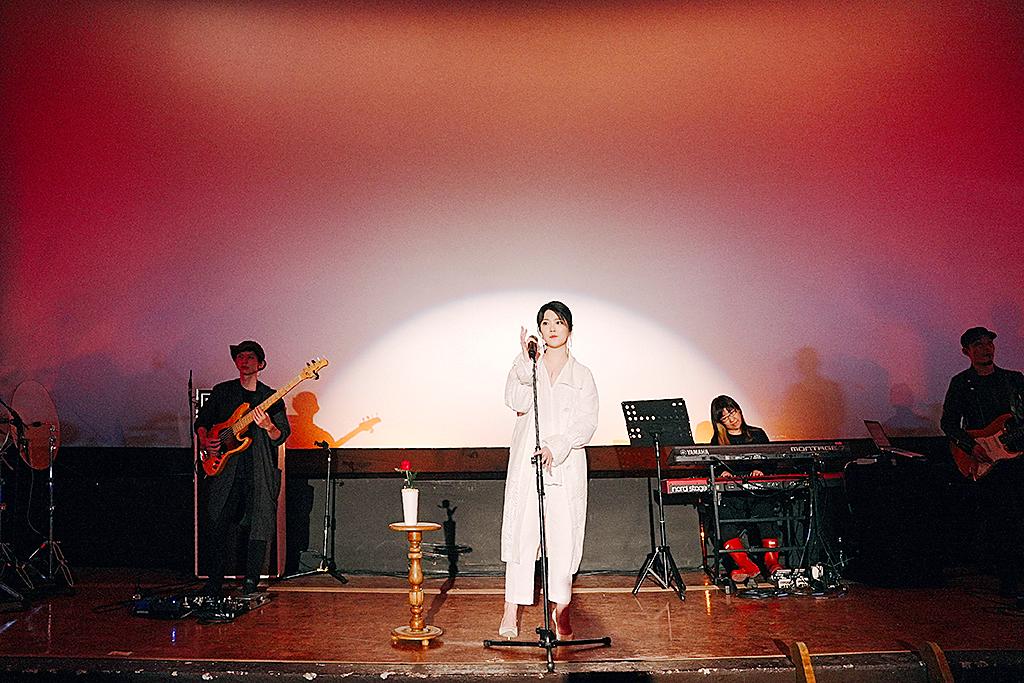
Photo courtesy of Taiwan Beats Showcase
“Whenever I saw a temple festival or funeral, I would stand there for a long time and space out,” Jiun Chi recalls. “I think that’s quite a psychedelic experience.”
Some memorable samples include Hsui Hao-ping (眭澔平) talking about the existence of aliens and a very specific video game noise from the old-school game Maplestory.
Mong Tong says they thought that their performance style would be more suited for Western audiences, but they’ve unexpectedly received a cult following in Taiwan. To local audiences, they say that they make “superstitious music” as they have a fascination with the supernatural.
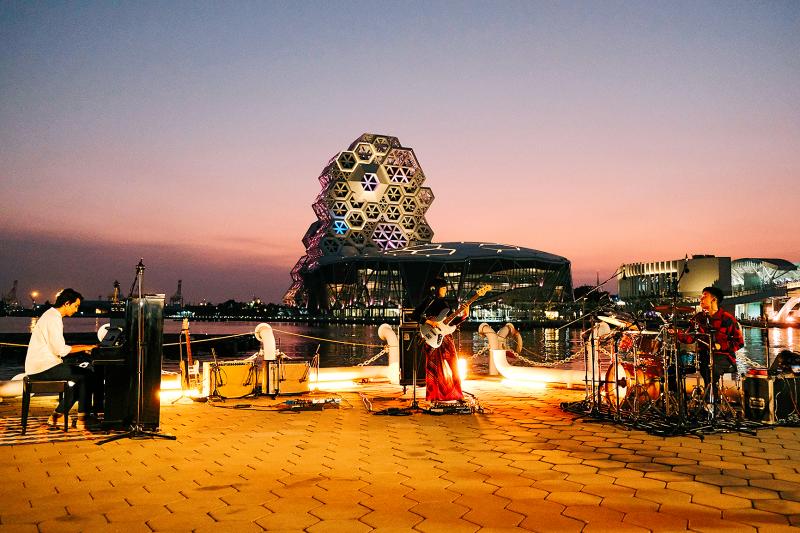
Photo courtesy of Taiwan Beats Showcase
The idea might get lost on those outside Taiwan, so they prefer to go with eastern or Taiwanese psychedelic. They don’t want to directly promote traditional Taiwanese elements to foreign viewers, they just want to pique their interest so they can come see for themselves.
“It doesn’t matter if we’re an electronic duo or an electronic band,” Hom Yu says. “I’m not quite sure myself. I think it’s like the status of Taiwan — just keep it mum.”
SOUTHEAST ASIA NEXT
Mong Tong has also released two guides on Taiwan’s haunted or paranormal sites, but as the word “superstitious” suggests, they don’t really believe in this stuff. However, Jiun Chi says he feels an inexplicable unease and pressure when he gets too deep into researching certain topics.
Minyo Pop is their latest single, one in a series of “pop” tracks they have in their repertoire such as Nakasi Pop and Mountain Pop. It’s an ongoing project, Hom Yu explains, where they hope to make a “poppier” song per year.
“Of course it’s not real pop, it’s just, well, poppier in mood.”
The duo picks a theme first before they make music — conspiracy theories, supernatural occurrences — “it’s like making music to a script,” Jiun Chi says. As long as they’re respectful when they visit the sites, they don’t see a problem.
In fact, Hom Yu says, “If these ‘beings’ know that we are using a different angle to explore and try to understand them, I think they would be quite happy.”
Mong Tong has been exploring the music of smaller countries, which often melds traditional elements to create something that’s rarely heard in the mainstream.
For their upcoming album, which they hope to finish by the end of the year, Mong Tong hopes to focus on music from Southeast Asia. Just a few days ago, Jiun Chi ate at Little Burma at Nanshijiao, and visited ASEAN square, which has a high concentration of Southeast Asian migrants.
“I didn’t go especially to collect anything, but actually many don’t realize that these places and these people are so easily accessible,” he says.
Upon hearing ASEAN square, Hom Yu began telling an urban legend regarding a deadly fire that happened in the previous building in 1995, steering the conversation back to the occult before it concludes.

That US assistance was a model for Taiwan’s spectacular development success was early recognized by policymakers and analysts. In a report to the US Congress for the fiscal year 1962, former President John F. Kennedy noted Taiwan’s “rapid economic growth,” was “producing a substantial net gain in living.” Kennedy had a stake in Taiwan’s achievements and the US’ official development assistance (ODA) in general: In September 1961, his entreaty to make the 1960s a “decade of development,” and an accompanying proposal for dedicated legislation to this end, had been formalized by congressional passage of the Foreign Assistance Act. Two

March 31 to April 6 On May 13, 1950, National Taiwan University Hospital otolaryngologist Su You-peng (蘇友鵬) was summoned to the director’s office. He thought someone had complained about him practicing the violin at night, but when he entered the room, he knew something was terribly wrong. He saw several burly men who appeared to be government secret agents, and three other resident doctors: internist Hsu Chiang (許強), dermatologist Hu Pao-chen (胡寶珍) and ophthalmologist Hu Hsin-lin (胡鑫麟). They were handcuffed, herded onto two jeeps and taken to the Secrecy Bureau (保密局) for questioning. Su was still in his doctor’s robes at

Last week the Democratic Progressive Party (DPP) said that the budget cuts voted for by the China-aligned parties in the legislature, are intended to force the DPP to hike electricity rates. The public would then blame it for the rate hike. It’s fairly clear that the first part of that is correct. Slashing the budget of state-run Taiwan Power Co (Taipower, 台電) is a move intended to cause discontent with the DPP when electricity rates go up. Taipower’s debt, NT$422.9 billion (US$12.78 billion), is one of the numerous permanent crises created by the nation’s construction-industrial state and the developmentalist mentality it

Experts say that the devastating earthquake in Myanmar on Friday was likely the strongest to hit the country in decades, with disaster modeling suggesting thousands could be dead. Automatic assessments from the US Geological Survey (USGS) said the shallow 7.7-magnitude quake northwest of the central Myanmar city of Sagaing triggered a red alert for shaking-related fatalities and economic losses. “High casualties and extensive damage are probable and the disaster is likely widespread,” it said, locating the epicentre near the central Myanmar city of Mandalay, home to more than a million people. Myanmar’s ruling junta said on Saturday morning that the number killed had